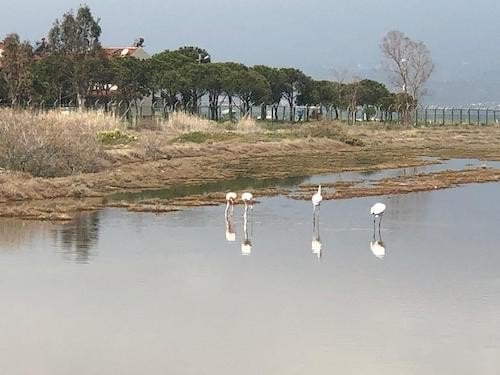Photo: Kazdağı Association for the Conservation of Natural and Cultural Heritage
Click to read the article in Turkish
The size of Akçay Reed Bed and Wetland in Edremit, Balıkesir in northwestern Turkey has been reduced from 144,75 hectares to 41,67 hectares according to the Ministry of Agriculture and Forestry data, an association in the region has revealed.
"The reduction is an indication that the area, which has been under the threat of illegal construction and zoning for a long time, will be dried and filled and opened for construction," the Kazdağı Association for Conservation of Natural and Cultural Assets said in a statement.
The area hosts 30 percent of the 489 bird species registered in Turkey, as well as critically endangered eels (Anguilla Anguilla) and hundreds of plant species.
Last year, the Balıkesir Metropolitan Municipality took over 377 acres of wetland in Altınkum Neighborhood, Akçay, from the Treasury free of charge and the area was labeled as a "reserve housing zone," the association said.

"An empty land"
Balıkesir Mayor Yücel Yılmaz called the area "an empty land" and said they were planning marketplace, mosque and tourism sections in the area. Some of it would be used as a housing area, he added.
In February, the Metropolitan Municipality requested sales authorization from the municipal council.
Thirty-seven NGOs, including the Kazdağı Association, had made an application to the municipality, demanding it end rubble dumping and rehabilitate the area.
"It is now revealed that the intentions for opening the area for zoning are not only for the 377-acre area but for all the wetland," the groups said in a statement.
The municipality's actions violated the Ramsar Convention, they noted.
Responding to the application, the municipality had said the area would be handed over to the Balıkesir-Edremit Agriculture-Based Specialized Greenhouse, but it didn't happen, according to the NGOs.
"According to scientific research and observations that are currently being carried out in the field, the entire Akçay Reed Bed and Wetland is still a 'wetland' and has not lost this quality," the groups said. "It is never acceptable for 100 hectares of the area to be deleted from the registries." (TP/VK)




.jpg)